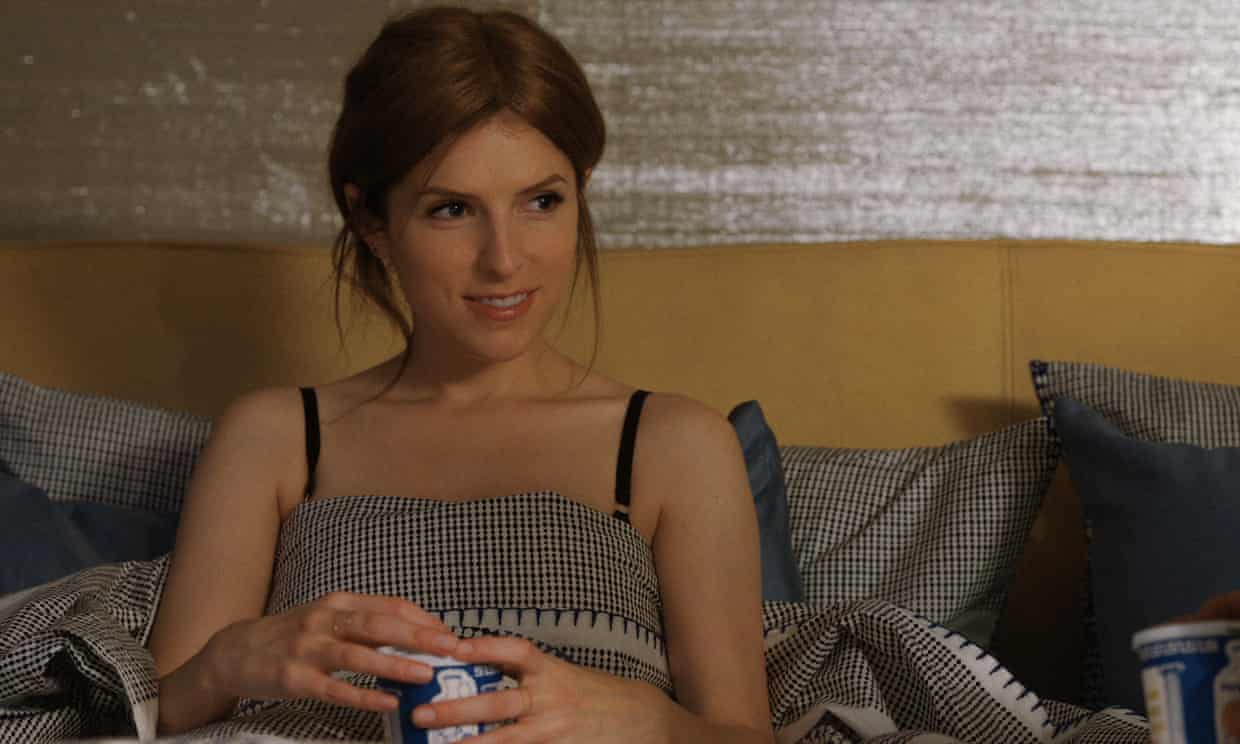
US television
Love Life review – HBO Max launches with a patchy, low-key romcom
The splashy new streaming platform kicks off with an easily binged if uneven show with Anna Kendrick as a woman whose relationships are analysed
by Benjamin LeeThere’s a canniness to the structure of the slick new anthology series Love Life, which aims to analyse the dating history of one protagonist per season, each episode focusing on either a major or minor relationship. It’s an ambitious way to extend the constraints of a 90-minute, one-couple romantic comedy to a 12-episode examination of all the dating highs and lows someone experiences throughout their life, theoretically providing us with a depth often missing from the genre. But as nifty as this all might seem, it’s still an inarguably low-key way to launch HBO’s splashy new streaming platform HBO Max, given that Love Life is the only scripted original for adults made available from the late May kick-off. Comparisons to streaming competitors as well as – most damagingly – HBO’s regular content are inevitable and unfortunate.
HBO has remained synonymous with elevated television, made with considerable budget and gloss, the rare network that guarantees a hard-to-rival level of high-end quality with every show. It’s hard, then, not to see Love Life as a more low-rent sign of what’s to come from its new streamer, a show made with only slightly more of a sheen than the average Netflix original, a bar that’s become increasingly low of late. That’s not to say there isn’t enough here for a solid recommendation, albeit one with certain caveats, but just one that requires a certain reconfigured expectation. The classic slogan “It’s not TV, it’s HBO” no longer applies. This is TV.
In season one, we’re attached to the improbably named Darby Carter, played by one-time Oscar nominee Anna Kendrick. The format of the show requires us to follow her through her early 20s through to her 30s and while mercifully, a flashback episode to a teen romance is played out with a different actor, Kendrick is required to act a decade younger than her age at times, a challenge she’s understandably not quite comfortable with. We follow her through her first relationship, a fling with an old colleague, a one-night stand and a messy marriage before the show starts to expand and focus on relationships with her mother and best friend, played by Hope Davis and Zoe Chao respectively.
It’s easy to forgive deviations from the original concept of a guy an episode because at times in the early stages, creator Sam Boyd struggles to make each one feel substantial enough in just 30 minutes a piece. We’re also following Darby’s career and her friendships, and so trying to force a beginning, middle and end of a relationship into these short episodes can make it feel breathlessly overstuffed. When the rules are then relaxed, the show is allowed to breathe a bit more and we’re also given more time with Chao, an engaging comic actor who’s quickly carving out her place as the go-to best friend (she can also be seen as Dakota Johnson’s roommate in this week’s plane movie par excellence The High Note). The downside of Chao’s magnetism is that one keeps wondering how much more the show could have been with her in the lead. Kendrick doesn’t quite have the raw charm required to maintain our investment or sell the show’s funnier moments. Rather like Emilia Clarke in last year’s Last Christmas, there’s something laboured about her sweetheart shtick and it’s only when the show reaches its more dramatic episodes that she starts to convince, suggesting an adeptness with darker material over lighter fare. Given that we spend so much time with her character, it’s a difficult misstep to ignore.
But Boyd finds space for enough acute observations about how we grow from relationship to relationship and how there’s value in analysing the patterns we’re stuck in to make Love Life feel like a worthy experiment. I’d argue that a few more risks could have been taken, especially in its portrayal of a rather blandly wholesome lead, but it’s an easily binged watch, with narrator Lesley Manville bookending each episode soothingly. If it’s to return, let’s just hope the life at its centre is one that’s a bit easier for us to love.
- Love Life is now available on HBO Max with a UK date yet to be announced